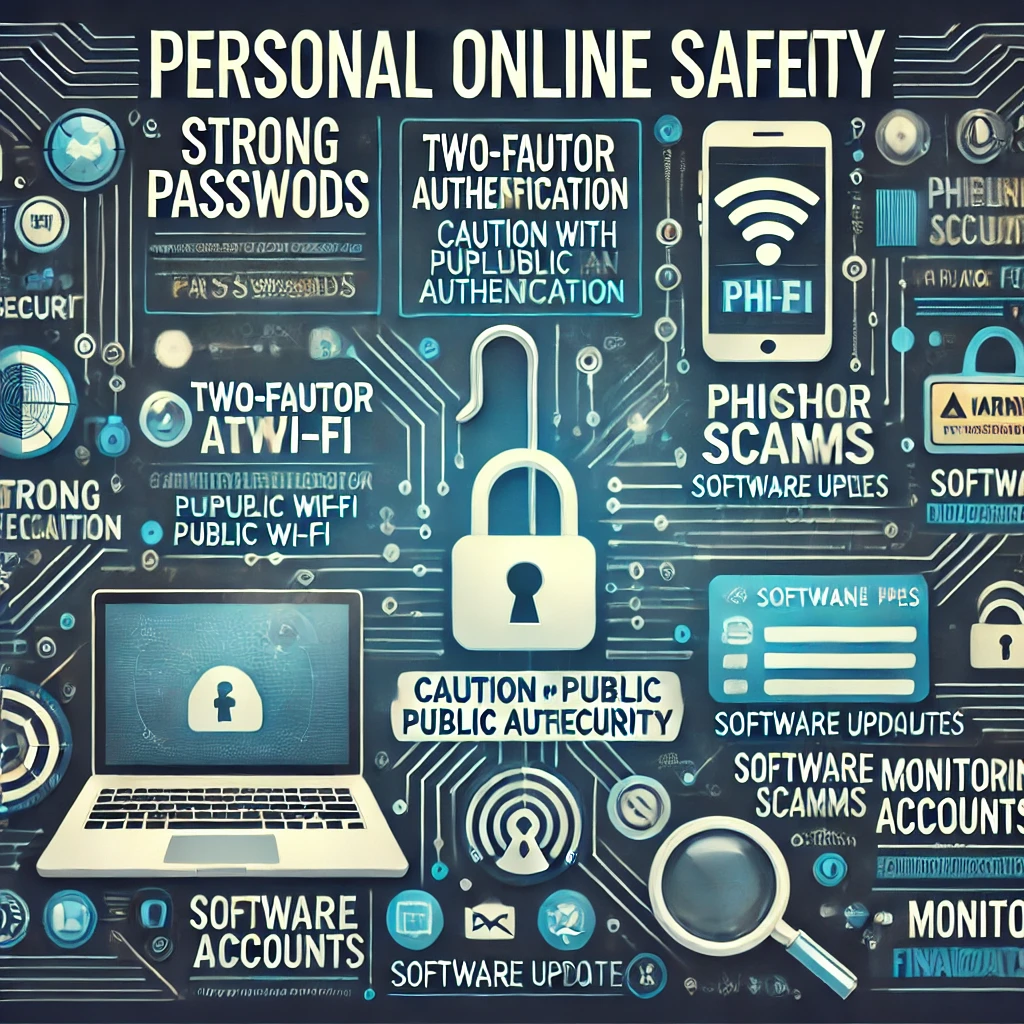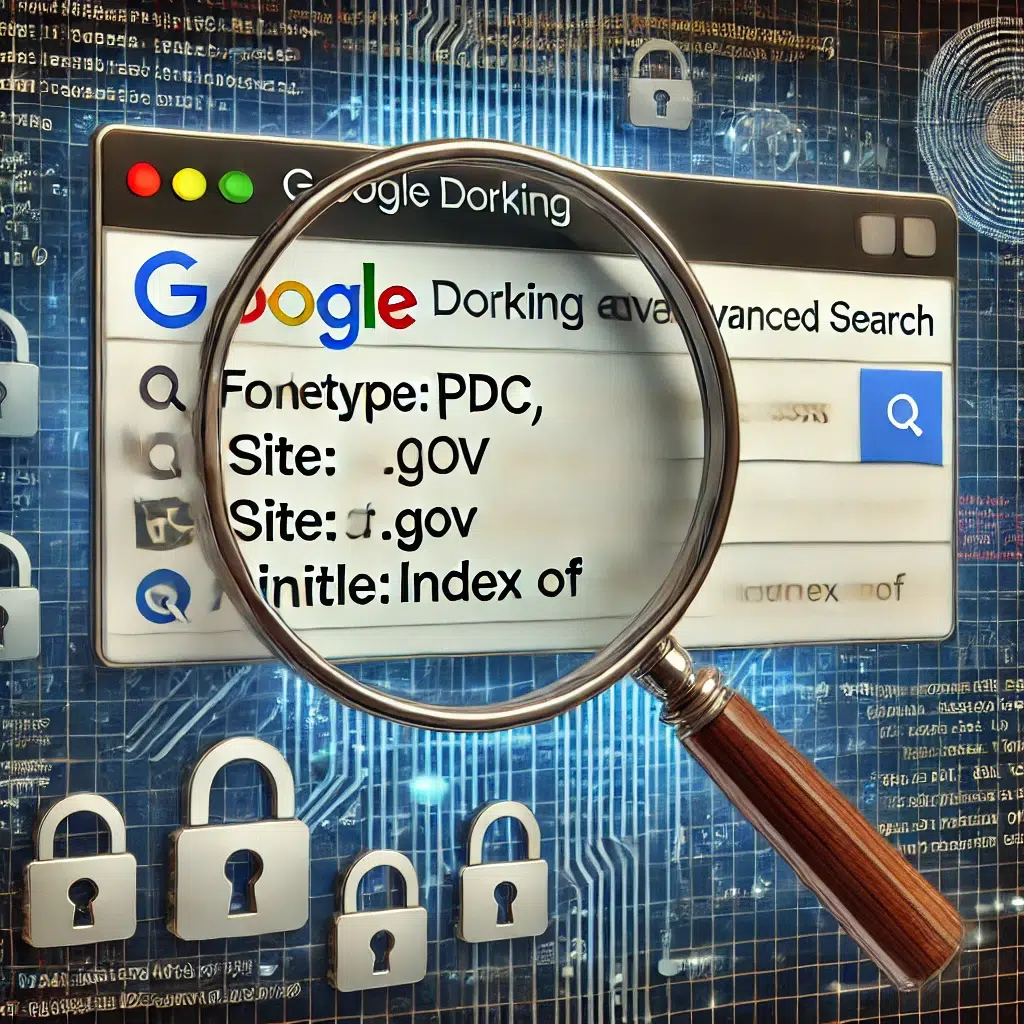
Personal Online Safety: A Comprehensive Guide
Maintaining personal online safety is more important than ever in today’s digital age. Cybercriminals find new ways to exploit vulnerabilities as our lives become increasingly interconnected. Here’s a guide to help you stay secure in the online world.
1. Strengthen Your Passwords
Passwords are your first line of defence. Follow these guidelines to create strong passwords:
- Use uppercase and lowercase letters, numbers, and special characters.
- Avoid using easily guessable information like birthdays or pet names.
- Opt for a password manager to store and generate unique passwords for each account.
2. Enable Two-Factor Authentication (2FA)
Two-factor authentication adds an extra layer of security by requiring a second form of verification. This can be a text message, an app-based code, or a biometric scan. Enable 2FA on your most critical accounts, such as email, banking, and social media.
3. Be Cautious with Public Wi-Fi
Public Wi-Fi networks are convenient but often insecure. To protect your data:
- Use a virtual private network (VPN) to encrypt your connection.
- Avoid accessing sensitive accounts or making transactions on public Wi-Fi.
- Always connect to networks that require a password and verify their legitimacy.
4. Recognise Phishing Scams
Phishing scams trick users into revealing personal information. Be vigilant:
- Avoid clicking on links or downloading attachments from unknown sources.
- Verify the sender’s email address carefully, as scammers often mimic legitimate organisations.
- Look for signs of a secure website (e.g., a padlock icon and “https” in the URL).
5. Update Your Software Regularly
Outdated software can leave you vulnerable to cyberattacks. Ensure that:
- Your operating system and applications are updated with the latest patches.
- Automatic updates are enabled where possible.
- Antivirus and anti-malware software have been installed and are up to date.
6. Limit Personal Information Sharing
The more information you share, the easier cybercriminals can exploit it. Take these steps:
- Restrict your social media profiles to friends or private settings.
- Avoid posting sensitive details like your address, phone number, or travel plans.
- Use caution when filling out online forms or surveys.
7. Monitor Your Accounts Regularly
Stay vigilant by keeping an eye on your accounts:
- Check your bank statements and credit reports for unauthorised transactions.
- Set up alerts for suspicious activity on critical accounts.
- Use tools like Have I Been Pwned to check if your data has been compromised.
8. Educate Yourself and Others
Cyber threats evolve constantly, so staying informed is crucial:
- Follow reputable cybersecurity blogs and news sources.
- Share knowledge with family and friends, especially those less tech-savvy.
- Consider taking online courses or attending workshops on digital safety.
Conclusion
Personal online safety is a shared responsibility. Implementing these strategies can significantly reduce your risk of falling victim to cyberattacks. Stay vigilant, keep learning, and prioritise your digital well-being.



